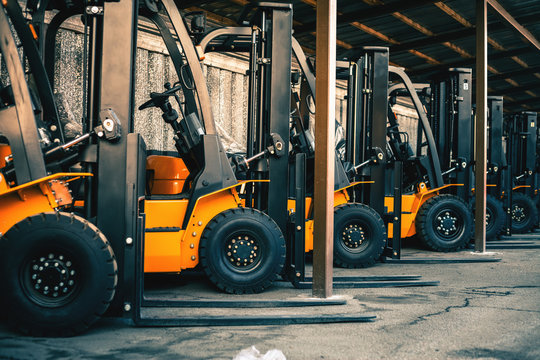In industries where material handling is critical, forklifts play an indispensable role. These versatile machines enable efficient movement of goods, enhance productivity, and ensure safe operations. However, owning forklifts comes with significant expenses, from upfront costs to ongoing maintenance. This is where forklift rentals emerge as a game-changing alternative for businesses aiming to manage costs effectively. Renting forklifts not only reduces financial strain but also provides operational flexibility that aligns with evolving business needs.
The Hidden Costs of Forklift Ownership
Forklift ownership might seem like a straightforward solution, but it involves a variety of hidden costs that can accumulate over time. Businesses often overlook the following expenses:
1. Initial Purchase Costs
Purchasing a forklift requires a substantial upfront investment. This can strain budgets, particularly for small or medium-sized enterprises. The funds used for this purchase could instead be allocated to other operational priorities, such as workforce development or inventory expansion.
2. Maintenance and Repairs
Forklifts require regular maintenance to remain operational. Routine inspections, part replacements, and unexpected repairs can quickly add up, especially for older equipment. For example, hydraulic system failures or engine repairs can incur significant expenses.
3. Depreciation
Like any heavy machinery, forklifts lose value over time. Depreciation diminishes the resale value of the equipment, leaving businesses with fewer returns on their initial investment.
4. Storage and Insurance
Storing forklifts securely and insuring them against damage or theft represent ongoing costs. Additionally, insurance premiums can vary based on the equipment’s condition and usage.
Why Forklift Rentals Are Cost-Effective
Forklift rentals address these challenges by offering a flexible and economical solution for material handling needs. Companies like Tri-Lift Industries, Inc. provide a wide range of forklift rental options tailored to different business requirements. Here are some key benefits:
1. No Upfront Investment
Renting forklifts eliminates the need for a large upfront payment. Businesses can access high-quality equipment without tying up capital, allowing them to allocate resources more strategically.
2. Predictable Costs
Rental agreements typically come with fixed pricing, enabling businesses to budget more accurately. Unlike ownership, where repair and maintenance costs can vary unpredictably, rentals offer clarity and financial stability.
3. Maintenance-Free Operations
Reputable rental providers handle maintenance and repairs as part of their service. This ensures that the equipment is always in optimal condition, reducing the risk of unexpected breakdowns and downtime.
4. Access to Modern Equipment
Renting allows businesses to use the latest forklift models equipped with advanced technology. This not only enhances efficiency but also reduces fuel consumption and emissions, aligning with sustainability goals.
Flexibility and Scalability with Rentals
1. Adaptability to Seasonal Demands
For businesses with fluctuating workloads, such as those in retail or logistics, forklift rentals offer unmatched flexibility. During peak seasons, additional equipment can be rented to handle increased demand. Once the busy period ends, businesses can scale down their fleet to avoid unnecessary costs.
2. Tailored Solutions for Specific Projects
Different projects require different types of forklifts. Rental providers offer a variety of models, including electric forklifts for indoor use and diesel-powered options for outdoor tasks. This ensures that businesses have access to the right equipment for each job without committing to long-term ownership.
3. Short-Term and Long-Term Options
Whether a business needs a forklift for a few days or several months, rental agreements can be customized to fit specific timelines. This adaptability is particularly valuable for short-term projects or temporary expansions.
Operational Benefits of Renting Forklifts
1. Improved Cash Flow
By avoiding large upfront payments and unpredictable maintenance costs, businesses can maintain healthier cash flow. This financial flexibility allows for better planning and investment in growth opportunities.
2. Reduced Downtime
Rental providers, such as Tri-Lift Industries, Inc., ensure that their equipment is well-maintained and reliable. In the rare event of a malfunction, rental agreements often include prompt replacements, minimizing downtime and keeping operations running smoothly.
3. Compliance with Safety Standards
Safety is a top priority in material handling operations. Rental forklifts are regularly inspected and updated to meet the latest safety regulations. This reduces the risk of accidents and ensures compliance with industry standards.
Environmental and Technological Advantages
1. Sustainability
Renting forklifts aligns with eco-friendly practices by promoting shared usage and reducing the demand for new equipment manufacturing. Additionally, rental providers offer electric models that produce zero emissions, contributing to greener operations.
2. Advanced Technology
Modern forklifts come with features such as improved fuel efficiency, ergonomic designs, and telematics systems for real-time performance monitoring. Renting ensures access to these innovations without the need for frequent equipment upgrades.
Choosing the Right Rental Provider
Selecting a reliable rental provider is crucial for maximizing the benefits of forklift rentals. Consider the following factors when evaluating options:
- Diverse Fleet: Ensure the provider offers a variety of forklift models to meet different operational needs.
- Maintenance and Support: Look for providers that include maintenance and technical support as part of their rental agreements.
- Flexible Terms: Choose a provider that offers customizable rental durations and pricing plans.
- Reputation: Opt for established providers like Tri-Lift Industries, Inc., known for their quality equipment and exceptional service.
The Long-Term Impact of Forklift Rentals
By integrating forklift rentals into their operations, businesses can achieve long-term cost savings and enhanced efficiency. Rentals provide the flexibility to adapt to changing demands, access the latest technology, and maintain compliance with safety and environmental standards. These advantages contribute to a more streamlined and competitive business model.
Conclusion
Forklift rentals offer a practical and cost-effective alternative to equipment ownership, enabling businesses to reduce operational expenses and improve productivity. With flexible rental options, access to modern technology, and comprehensive maintenance support, providers like Tri-Lift Industries, Inc. empower businesses to focus on their core operations without the financial and logistical burdens of ownership. Embracing forklift rentals is not just a smart financial decision—it’s a strategic move toward sustainable and efficient business practices.


